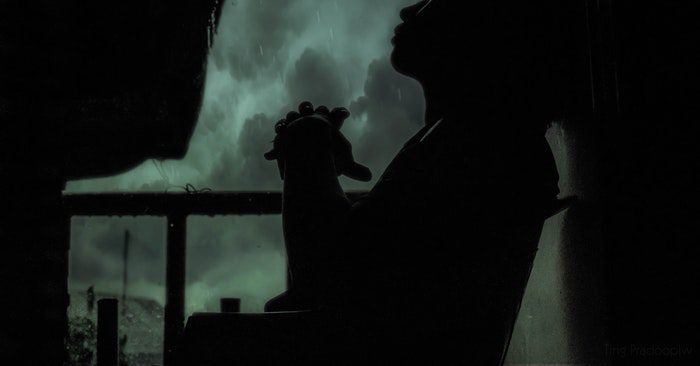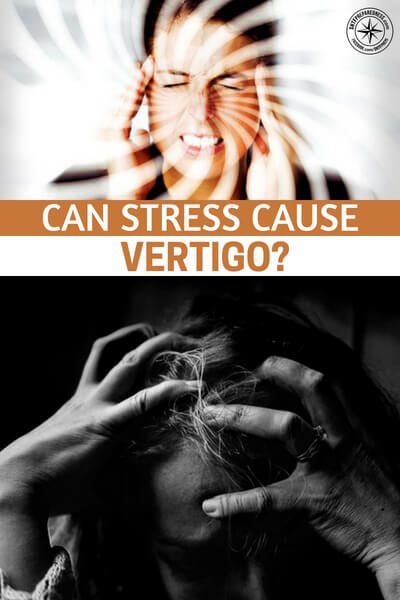SHTFPreparedness may collect a share of sales or other compensation from the links on this page.

Being stressed is more than tension. Stress elevates your cortisol and adrenal fight or flight hormones and can lead to a number of other issues.
So, can stress cause vertigo? Absolutely.
In fact, stress is one of the common causes of vertigo. Vertigo is a period of prolonged dizziness, and can be mild, which you can still function but need to be careful, to severe, where you can’t even get up without assistance
The Difference Between Vertigo and Dizziness
First, let’s see if you’re experiencing vertigo or dizzy spells.
Dizziness = Lightheaded
Dizziness involves lightheadedness, disorientation and can include a sense of falling and imbalance.
Vertigo = Spinning
Vertigo is an illusion of motion and can include dizziness but also involves a distinct spinning sensation.
When I’ve Fainted
On occasions throughout my life, my body’s default to shocking and/or painful events related to my own body, has been to faint. In these situations the blood drains from the brain, you turn pale and subsequently, vision blurs then goes dark, and you’re out like a light. These dizzy spells seldom last long; anything from seconds to minutes.
I’ve fainted from pain, shock and dread.
For me, most of these have occurred from jolting falls accompanied by a fleeting thought of dread. One such occurrence was from slipping on ice and landing hard on my arm. We’re talking me striding full speed ahead, (my daughter would say “marching”), and hitting a spot of black ice, and like in the cartoons, body lurching into the air feet first, and landing on the back with a huge thud while trying to break the fall with a hand.
In a split second my brain flitted between the shock of the jolt to the system, accompanying pain, and the dread of physical consequences. E.g., “I hope my arm isn’t broken”, and all the humbug that would entail. A second later, I’ve passed out. Shock related fainting affects the blood flow by way of the nervous system known as syncope, (pronounced SINK-ah-pee).
When my Daughter has Fainted
A sudden drop in blood pressure can cause fainting and is more common in younger people.
This generally has to do with a blip in the autonomic nervous system. This basically means a lack of coordination between the blood pressure and the heart and vascular system. There’s suddenly more demand for blood than the body is able to pump to the brain in the moment, resulting in not enough blood flow to the brain.
There are other causes as well, such as how dehydration or long periods of standing can lead to the dis-coordination, however, the root cause is simply a brief imbalance that typically corrects itself shortly.
If this persists, definitely seed medical advice. Even brief episodes can lead to more serious issues. When my daughter—in her early 20’s—fainted full out in the shower, she ended up with a black eye and bruises, including on the back of her head, which she must’ve banged on something on the way down.
Causes of Vertigo and Dizziness
- This nervous (vasovagal) system dizziness that can result in syncope and fainting is the number one cause of dizziness.
- Low blood pressure is the second cause of dizziness.
